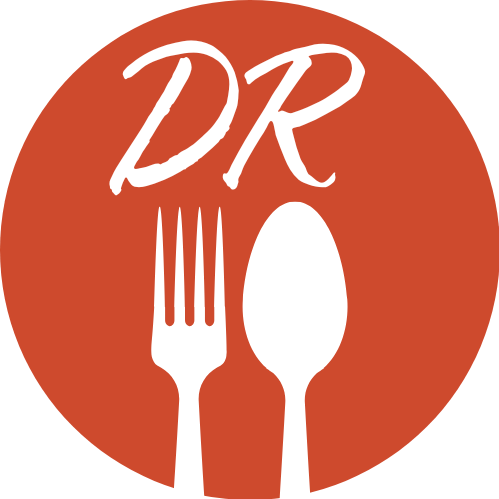Bacon and eggs are classic staples of breakfast menus worldwide, loved for their rich flavors and versatility. Their enduring popularity is due to their simplicity, taste, and ability to provide a satisfying start to the day. However, their healthiness is often debated. While some view them as a protein-rich and energy-packed combination, others raise concerns about their cholesterol content, saturated fats, and sodium levels. Understanding their nutritional profiles can help clarify their role in a balanced diet.
Nutritional Value of Bacon in a Bacon and Eggs Meal
Calories and Macronutrients

Bacon is a calorie-dense food, primarily because of its fat content. A typical serving of cooked bacon (about three slices or 35 grams) contains approximately:
- Calories: ~150
- Protein: ~12 grams
- Fat: ~11 grams (with 4 grams of saturated fat)
- Carbohydrates: 0 grams
The high fat and protein content of bacon make it a satisfying food, but its caloric density requires mindful portion control.
Vitamins and Minerals Found in Bacon
Despite its reputation as a processed meat, bacon provides certain essential nutrients:
- B Vitamins (B1, B3, B6, B12): Support energy metabolism and nervous system health.
- Zinc: Plays a crucial role in immune function and wound healing.
- Phosphorus: Essential for bone health and cellular repair.
- Selenium: A powerful antioxidant that helps protect cells from damage.
While bacon contains beneficial nutrients, its high levels of sodium and preservatives like nitrates and nitrites are potential health concerns, especially with excessive consumption.
Nutritional Profile of Eggs
Protein Content and Amino Acids
Eggs are widely celebrated as an excellent source of high-quality protein. A single large egg (about 50 grams) provides:
- Calories: ~70
- Protein: ~6 grams
- Fat: ~5 grams (mostly unsaturated fats)
- Carbohydrates: 0 grams
Eggs are considered a “complete protein,” meaning they contain all nine essential amino acids required for muscle repair, hormone production, and overall cellular function.
Essential Vitamins and Minerals
Eggs are nutrient-dense, offering a variety of vitamins and minerals in their yolk and whites:
- Choline: Crucial for brain health and development.
- Vitamin D: Supports bone health and immune function.
- Vitamin B12: Essential for red blood cell formation and neurological function.
- Selenium: Provides antioxidant benefits.
- Iron, Phosphorus, and Folate: Contribute to energy production and overall health.
Eggs also contain small amounts of lutein and zeaxanthin, antioxidants that promote eye health.
By examining the nutritional profiles of bacon and eggs, it becomes clear that they can provide valuable nutrients. However, balancing their consumption with other healthy foods and considering individual dietary needs is key to making them part of a nutritious lifestyle.
Health Benefits of Bacon
Source of Protein
Bacon provides a moderate amount of protein, which is essential for muscle repair, immune function, and overall cellular health. A few slices can contribute to daily protein requirements, though it should not be relied upon as the primary source.
Contains Important Micronutrients
Bacon contains several vital nutrients, including:
- B Vitamins (e.g., B12, B6): Support energy metabolism and brain function.
- Zinc: Strengthens the immune system and aids in tissue repair.
- Phosphorus: Plays a role in bone health and energy production.
- Selenium: Acts as an antioxidant, protecting cells from damage.
While bacon provides these micronutrients, they come in relatively small quantities compared to healthier, less processed protein sources.
Health Benefits of Eggs
High-Quality Protein
Eggs are one of the best sources of complete protein, meaning they provide all nine essential amino acids the body needs. This makes them ideal for muscle growth, tissue repair, and overall metabolic function.
Rich in Choline and Other Nutrients
Eggs are an excellent source of choline, a nutrient critical for brain health, nerve function, and fetal brain development during pregnancy. Additionally, eggs are rich in:
- Vitamin D: Supports bone health and immune system function.
- Vitamin B12: Essential for red blood cell production and neurological health.
- Antioxidants (lutein and zeaxanthin): Promote eye health and may protect against age-related macular degeneration.
Potential Health Concerns with Bacon
Saturated Fats and Sodium Levels
When overconsumed, Bacon is high in saturated fats, which may contribute to elevated cholesterol levels and increased cardiovascular disease risk. Its sodium content can also exacerbate high blood pressure and strain the cardiovascular system, particularly in individuals sensitive to salt.
Risks Associated with Processed Meats
Bacon is classified as a processed meat, which has been linked to increased risks of certain health conditions:
- Colorectal Cancer: Studies suggest regular consumption of processed meats is associated with higher cancer risk due to preservatives like nitrates and nitrites.
- Heart Disease: High levels of saturated fat and sodium can contribute to plaque buildup in arteries over time.
Potential Health Concerns with Eggs
Cholesterol Content
Egg yolks are relatively high in dietary cholesterol, with one large egg containing about 186 milligrams. While for most healthy individuals, dietary cholesterol has little impact on blood cholesterol levels, those with conditions such as diabetes or heart disease may need to limit their intake based on medical advice.
Allergies and Sensitivities
Eggs are a common allergen, particularly in children. Symptoms can range from mild (skin rashes, digestive upset) to severe (anaphylaxis). Additionally, some people may experience egg protein sensitivities without a true allergy.
While bacon and eggs offer nutritional benefits, understanding and managing their potential risks is crucial to incorporating them healthfully into a balanced diet. Moderation and pairing them with other nutrient-dense foods, like vegetables and whole grains, can optimize their role in a healthy lifestyle.
Bacon and Eggs in a Balanced Diet
Portion Control
Portion control is crucial when incorporating bacon and eggs into a balanced diet. Small portions of bacon (1–2 slices) can provide flavor and protein without excessive saturated fats or sodium. Similarly, 1–2 eggs are sufficient to deliver protein and essential nutrients without overloading on cholesterol.
Pairing with Healthy Sides
To create a balanced meal, combine bacon and eggs with nutrient-dense sides:
- Vegetables: Spinach, tomatoes, and mushrooms add fiber, vitamins, and antioxidants.
- Whole Grains: Whole-grain toast, quinoa, or oatmeal provides complex carbohydrates and fiber.
- Fruits: Add fresh fruit like berries or sliced avocado for additional vitamins, healthy fats, and antioxidants.
These combinations help offset the high fat and sodium content of bacon while enhancing the meal’s nutritional profile.
Are Bacon and Eggs Healthy Together?
The Synergy of Nutrients
When consumed together, bacon and eggs provide a balance of protein, fats, and essential nutrients:
- Eggs supply high-quality protein, choline, and vitamins.
- Bacon adds a rich flavor and contributes additional protein and micronutrients like zinc and selenium.
Pairing these two foods can make for a satisfying and energy-rich meal, particularly when eaten with nutrient-rich sides that add fiber and balance the meal’s fat and sodium content.
Moderation is Key
While bacon and eggs can be a healthy combination, moderation is critical:
- Limit bacon consumption to reduce sodium and processed meat intake.
- To minimize added fats, use healthier cooking methods, like baking bacon and poaching eggs.
Healthier Alternatives to Traditional Bacon
Turkey Bacon
Turkey bacon is a lower-fat and lower-calorie alternative to traditional pork bacon. It typically contains:
- Less saturated fat and calories.
- Similar protein content.
- Lower sodium options are available.
While healthier, turkey bacon is still processed and should be eaten in moderation.
Plant-Based Options

Plant-based bacon alternatives, made from ingredients like soy, tempeh, or coconut, are excellent choices for reducing saturated fat and avoiding processed meats. They often contain:
- Lower fat and calorie content.
- Fiber and plant-based protein.
- Minimal or no cholesterol.
When choosing plant-based bacon, check labels for minimal added sugars and sodium.
Incorporating bacon and eggs into a balanced diet is achievable with thoughtful portion sizes, healthy pairings, and the occasional use of alternatives. Whether you enjoy the traditional combo or prefer lighter variations, balance and moderation are key for optimal health.
Cooking Methods That Impact Health
Baking vs. Frying Bacon
- Baking: Baking bacon in the oven on a rack allows excess fat to drain away, making it a healthier option. It also ensures even cooking and reduces the need for added oils or fats.
- Frying: Pan-frying bacon often leads to the meat absorbing its own fat, increasing calorie and fat content. However, using a non-stick pan and draining excess fat on a paper towel can make frying a bit healthier.
Best Ways to Prepare Eggs
- Boiling or Poaching: These methods do not require added fats, making them the healthiest options. They preserve the egg’s natural nutrients without introducing extra calories.
- Scrambling: Use minimal butter or oil and consider mixing eggs with vegetables for added nutrition.
- Frying: If frying, opt for heart-healthy oils like olive oil or avocado oil and limit the quantity used.
The choice of cooking method significantly impacts the overall nutritional value of a meal. Choosing methods that reduce fat and sodium intake can make bacon and eggs a healthier choice.
Scientific Studies on Bacon and Eggs
Research on Cholesterol and Heart Health
Studies on eggs and dietary cholesterol suggest that:
- For most people, consuming eggs in moderation (up to one egg per day) does not significantly raise blood cholesterol or increase heart disease risk.
- Individuals with specific conditions, such as diabetes or hypercholesterolemia, may need to limit egg yolk consumption.
Bacon, being high in saturated fats and sodium, has been associated with an increased risk of heart disease when consumed in large quantities or frequently. Research consistently links processed meats to cardiovascular issues due to their high sodium and nitrate content.
Studies on Protein-Rich Breakfasts
Protein-rich breakfasts, like bacon and eggs, have been shown to:
- Improve satiety: Protein increases feelings of fullness, potentially aiding in weight management.
- Support muscle maintenance: High-protein meals help preserve muscle mass, particularly when paired with exercise.
- Enhance metabolic health: Studies suggest that protein-rich breakfasts may improve glucose regulation and reduce hunger throughout the day.
Cultural Perspectives on Bacon and Eggs
Breakfast Traditions Worldwide
Bacon and eggs are most famously associated with traditional Western breakfasts, particularly in the United States and the UK. However, other cultures approach breakfast differently:
- Japan: Breakfast often includes rice, fish, miso soup, and pickled vegetables.
- India: Breakfasts feature lentils, vegetables, and flatbreads like dosa or paratha.
- Mediterranean Countries: Breakfast includes fruits, yogurt, olives, and whole-grain bread.
These diverse approaches to breakfast demonstrate how bacon and eggs are specific to certain cultural contexts and may not align with global dietary traditions.
Influence on Modern Diets
The popularity of bacon and eggs has influenced modern diets in several ways:
- They are often promoted as part of low-carbohydrate diets (e.g., ketogenic diets) due to their high protein and fat content.
- The convenience and satisfaction they offer have made them staples in fast-food breakfast menus worldwide.
While bacon and eggs are iconic in Western cuisine, their role in modern diets continues to evolve, reflecting changing dietary preferences and health considerations.
Balancing traditional preparation methods with insights from scientific research and cultural understanding can help create healthier and more mindful approaches to enjoying bacon and eggs.
FAQs About Bacon and Egg Health
1. Can bacon and eggs be part of a healthy diet?
Yes, bacon and eggs can fit into a healthy diet when consumed in moderation and prepared using healthier methods. Pairing them with nutrient-dense sides, like vegetables and whole grains, can further enhance their health.
2. Are eggs bad for cholesterol levels?
For most people, moderate egg consumption does not significantly raise blood cholesterol levels or increase heart disease risk. However, individuals with specific conditions like diabetes or hypercholesterolemia should consult their doctor about egg intake.
3. Is turkey bacon healthier than traditional bacon?
Turkey bacon is often lower in calories and saturated fat than pork bacon, making it a healthier alternative. However, it is still processed and may contain sodium, so moderation is key.
4. What is the healthiest way to cook bacon and eggs?
- Bacon: Baking on a rack drains excess fat, reducing calorie content.
- Eggs: Boiling, poaching, or scrambling with minimal added fat are the healthiest preparation methods.
5. Can I eat bacon and eggs every day?
Eating bacon and eggs daily is not recommended due to the high sodium, saturated fat, and cholesterol content in bacon and egg yolks. Including them occasionally as part of a balanced diet is a healthier approach.
6. Are there plant-based alternatives to bacon and eggs?
Yes, plant-based bacon made from soy, tempeh, or coconut, as well as egg substitutes made from chickpea flour or mung beans, are great alternatives for those avoiding animal products.
Conclusion
Bacon and eggs, when enjoyed in moderation and prepared thoughtfully, can be part of a healthy lifestyle. Eggs provide high-quality protein, essential vitamins, and minerals, while bacon, despite its high fat and sodium content, can add flavor and some nutritional value. The key to incorporating bacon and eggs into your diet lies in portion control, pairing them with nutrient-dense foods, and opting for healthier cooking methods. By balancing enjoyment with mindful eating, bacon and eggs can fit seamlessly into a well-rounded diet.
You May also be Interested in:
The History and Appeal of Bagels: A Timeless Breakfast Staple

